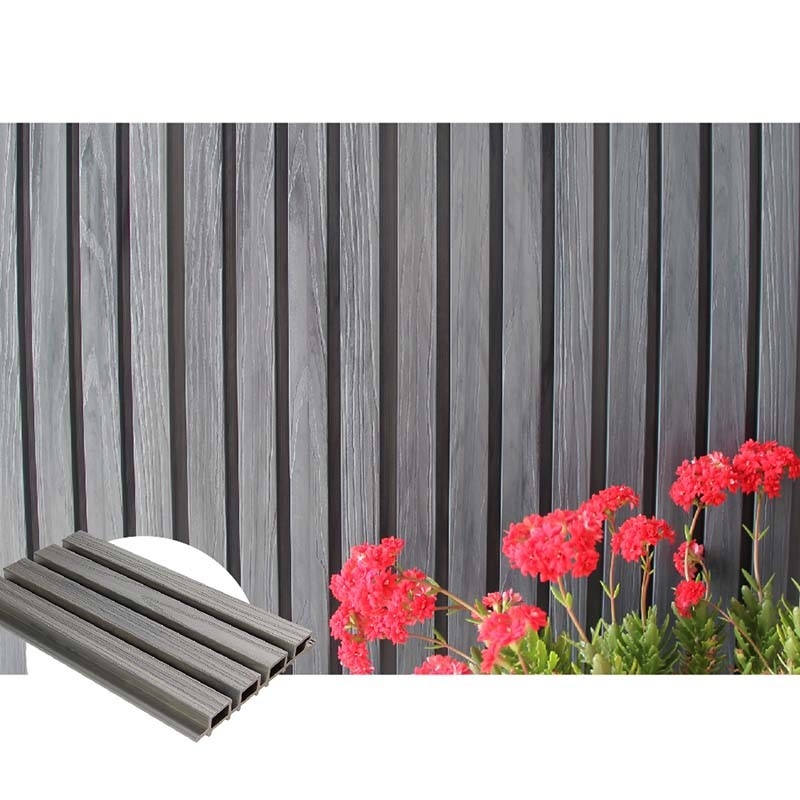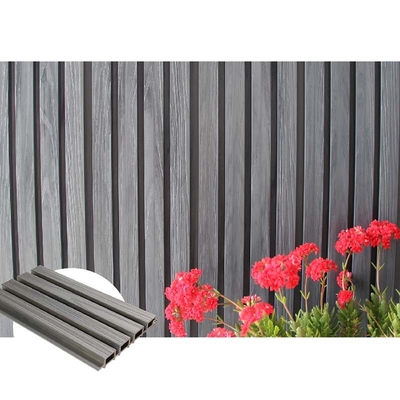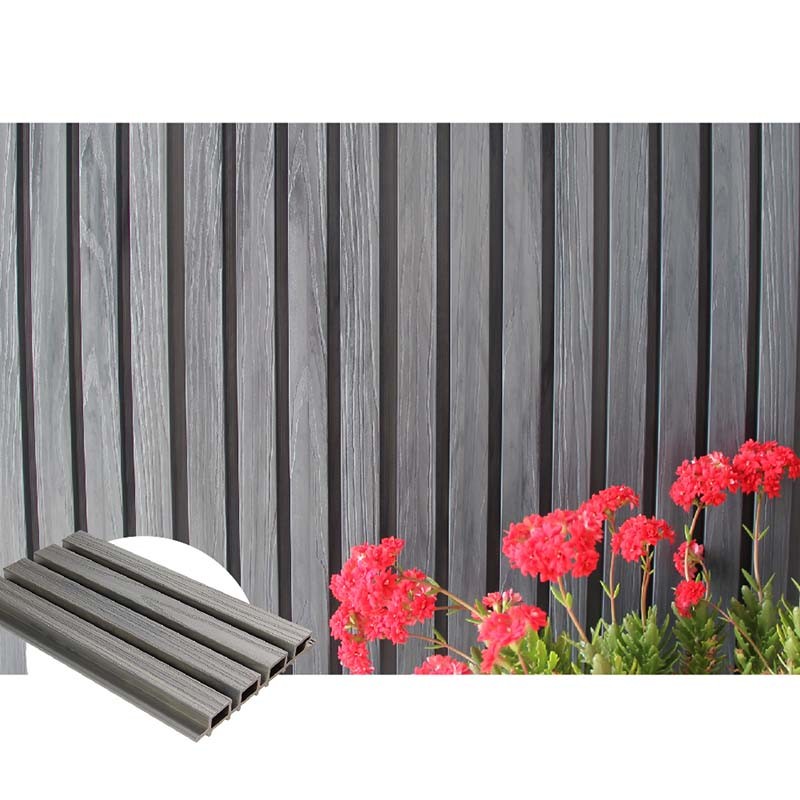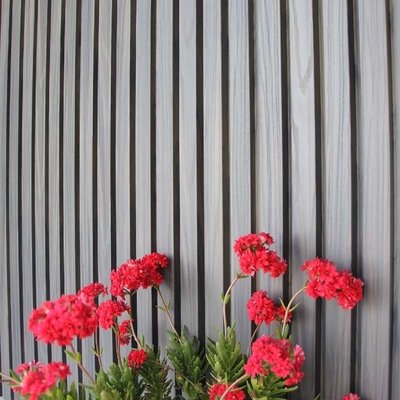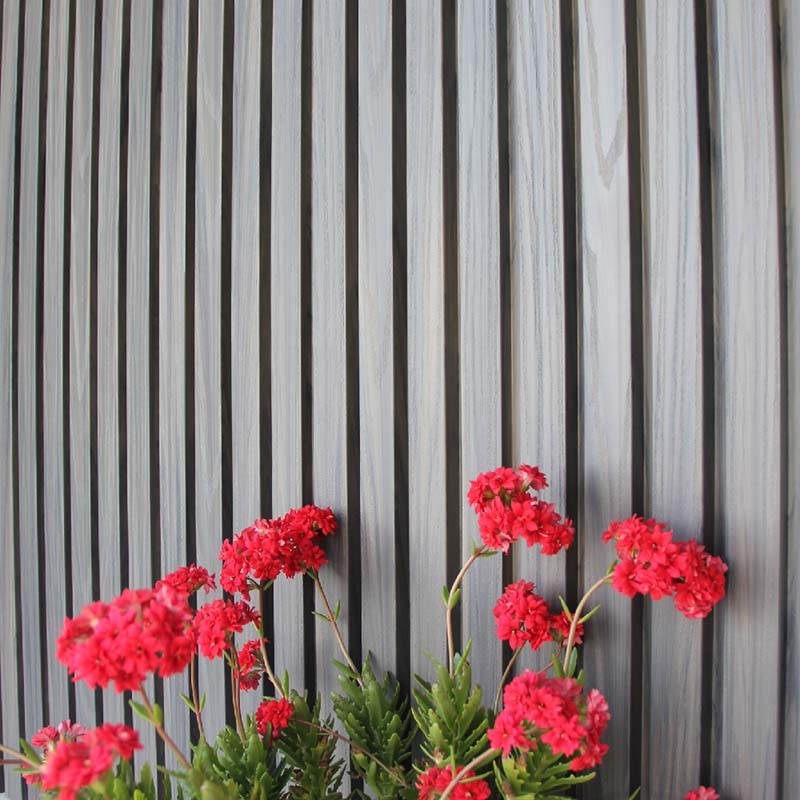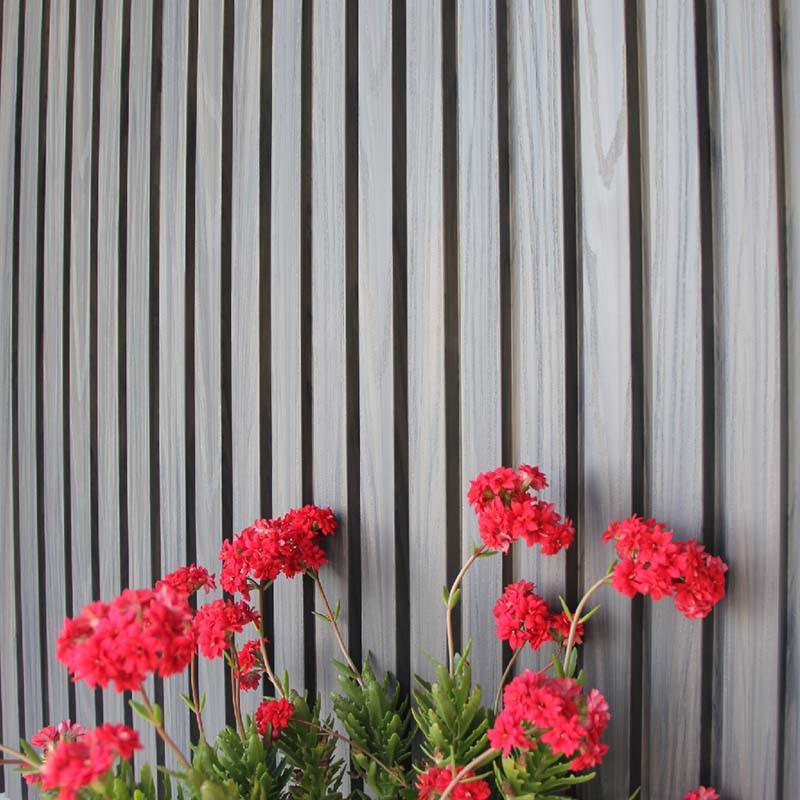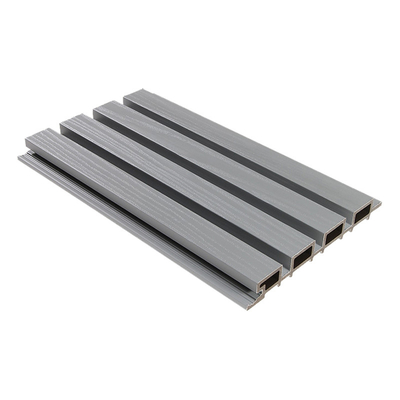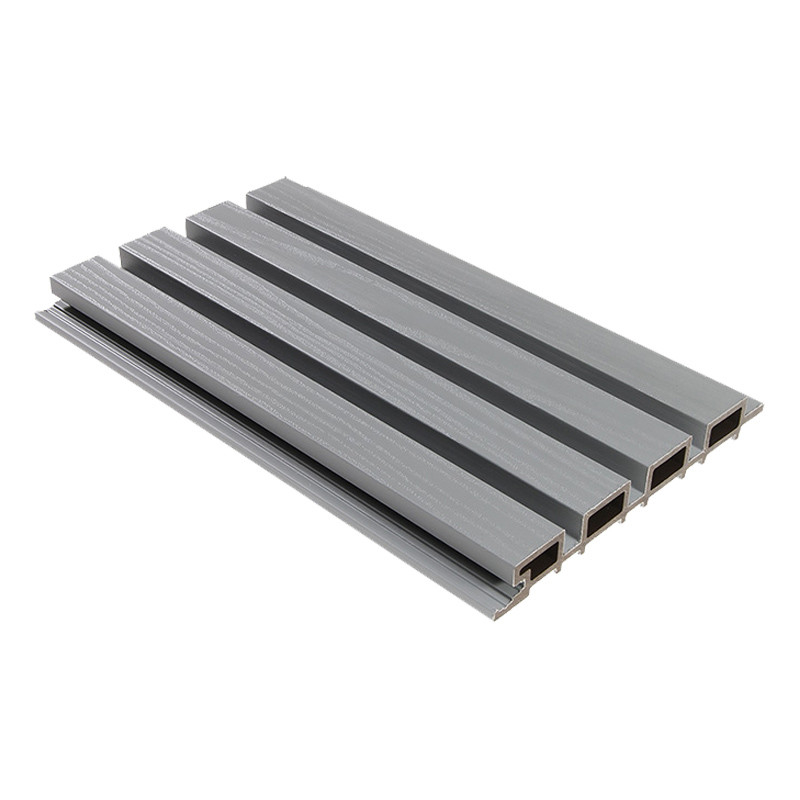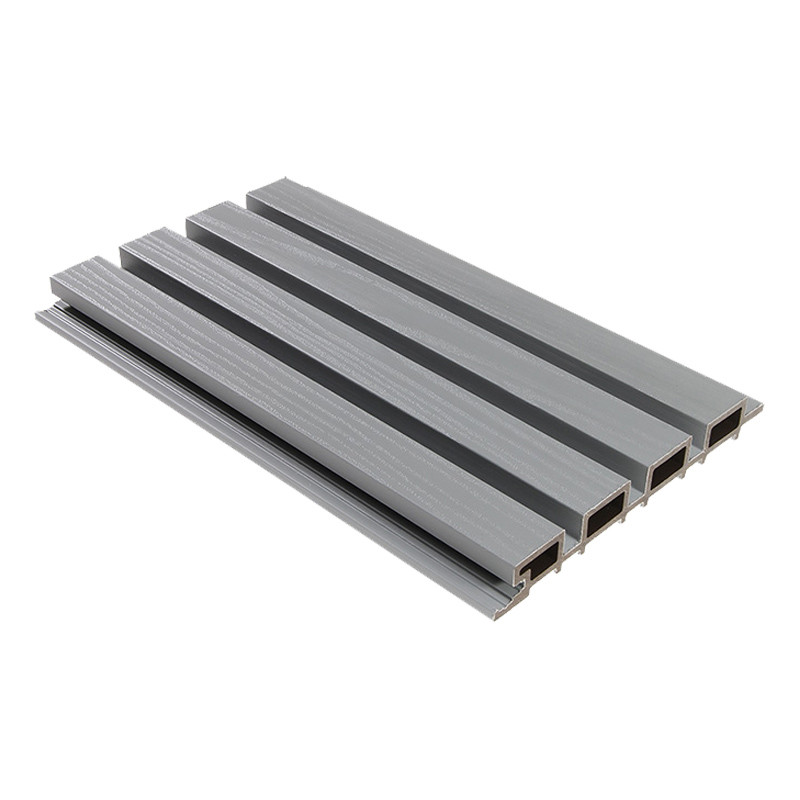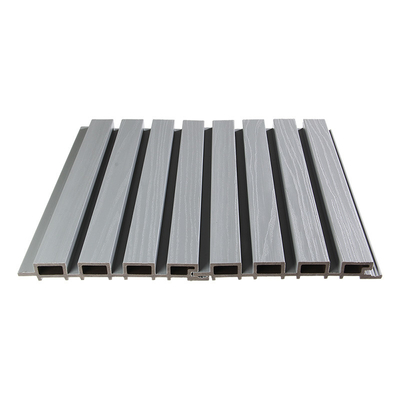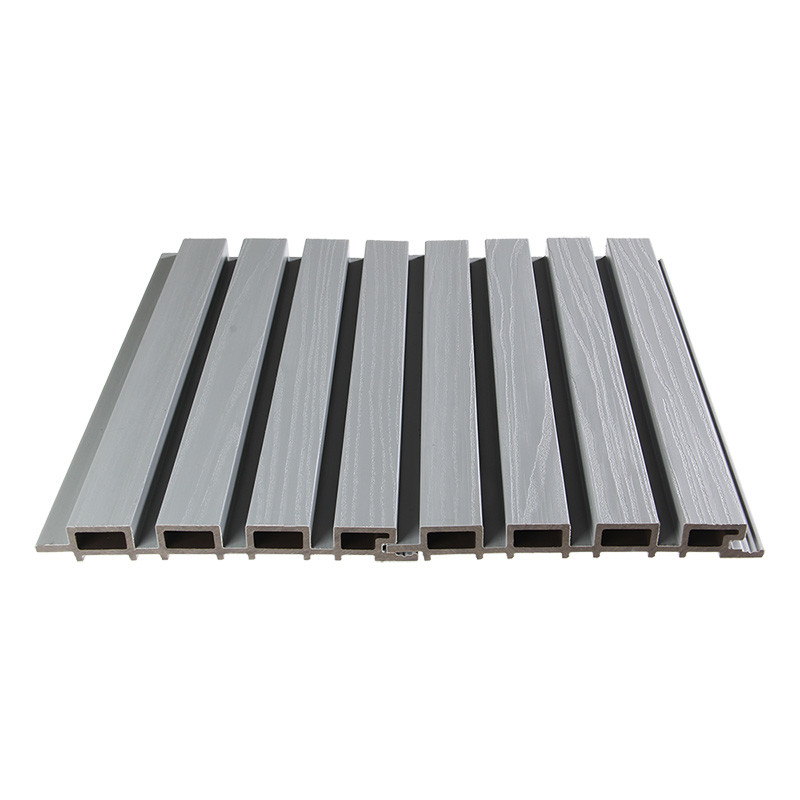Exported to 90+ Countries Leader In Wood Alternatives Composite Exterior Siding
Composite Exterior Siding Product Details
Cladding is a type of siding that can cover all or part of a house's outside walls. Stone, brick, and wood panels have been used for a long time to cover the outside of buildings. Even now, wood is still the most common material for building exteriors. Traditional wood siding is easy to find and has beautiful natural wood grain.
Traditional wood siding, on the other hand, can be damaged by moisture because it is made of living things. Even wood that has been treated to keep mold and mildew away can warp and fade over time. To make sure that wood cladding on the outside of a building looks nice and lasts longer. You'll also need to keep up with its maintenance. This will take more time and cost you more money.

Specification of Composite Exterior Wood Cladding Siding
| Surface |
3D wood grain
|
|
Color
|
Smoke Gray, Stone Gray, OAK, Dark Teak, Walnut, Ivory White, Space Gray, Amber Yellow, Maple, Teak, IPE, Black |
|
Length
|
2.2m, 2.7m, 3.6m, or customized |
|
WPC formula
|
50% wood fibers + 38% HDPE + 12% additives
|
|
Advantages
|
100% recycled, innocuous, waterproof, anti-UV, better resistance to fire, easy to install, no crack, no split, no warp, no splinter, antisepsis, no painting, no maintenance, etc |
|
Packaging
|
PE film, Carton Board, Plywood, Waterproof clothing, Pallet, Bandage, etc. NO WOOD
|
|
Lifetime
|
25-30 years
|
|
Production Period
|
7 days for LCL order, 12 days for FCL order
|
|
MOQ
|
200 square meters. If less, it's available according to stock
|

Advantages of COOWIN Composite Exterior Wood Cladding Siding
If you want to improve the outside of your home, composite wall cladding is the best way to do it. Even though composite cladding board costs more upfront than the wood cladding. But it is better than wood cladding in many other ways.
1. Low maintenance. Composite cladding doesn't need to be painted, sealed, or sanded to keep it in good shape. This means you don't have to pay more to keep it in good shape. After many years of use, the total cost of using composite deck cladding will be less than the total cost of using wood cladding. Composite wood cladding will still need to be cleaned from time to time.
2. It's a good insulator. Common building materials like concrete and steel don't insulate as well as composite wall cladding does. A building can be better protected if it has good insulation.
3. Fire resistance. The composite cladding has a fire rating of Class B. This means that composite exterior cladding is safer and more secure than traditional wood cladding because it is less likely to catch fire.
4. Durable. The unique mix of wood fiber and plastic is made to last for years without showing signs of wear. It is also more resistant to fading, so the outside of your house will look beautiful and last longer. Composite wood cladding is stronger and lasts longer than wood, but it is not the strongest material on the market.
5. Simple to clean up. Composite wall cladding is a high-end composite material that doesn't stain easily. The cladding doesn't soak up liquids, so it's easy to clean the surface of dust, etc.
6. Can keep water out well. When there is too much humidity in the air, wood can get wet, grow mold, and rot. This flaw can be fixed very well with composite house siding that is very good at keeping water out.
7. Being resistant to bugs. In some places, bugs like termites can be very dangerous for people. This is because they can eat away at wood and damage the house's structure, which can cause serious safety issues. Luckily, termites can't eat or make more termites out of composite materials with plastic parts. It also keeps termites from doing damage.
8. Multiple color options. Composite exterior cladding comes in many different colors and looks the most like wood. It is a great alternative to traditional wood cladding. It doesn't need to be stained or painted again, and it goes with most exterior design ideas.

COOWIN Customized Service
Concerns about a new and popular building material may still be on your mind. That won't be a problem! A free sample of composite wood cladding is available from us. If you have a specific length in mind, you can select the product and we'll cut it to it for you. You'll have a better grasp of what we offer if you do this.
In addition to the samples of composite wood cladding, we can also supply fasteners that match the material. For example, hidden fasteners in composite wall cladding, etc. Isn't it obvious? Our product brochure is an absolute necessity. The COOWIN brand, the products, and the actual installation are all described in great detail in this brochure.

FAQ:
Q1: Can I use glue or caulk with my decking?
A: No. Do not use glue or caulk to fasten COOWIN composite boards or to seal between any of our boards. This will impede the drainage of the board and inhibit the natural expansion and contraction of the boards.
Q2: What would you recommend using for the understructure of a deck?
A: COOWIN composite decking works well with substructures made of a variety of materials, like natural lumber or pressure-treated lumber. COOWIN composite or metal joists are recommended are preferred as they are designed specifically for COOWIN decking.
Q3: Can you rip a composite decking board?
A: Yes. Our composite boards can’t be ripped to reduce thickness but can be ripped to reduce width.
Q4: What are fascia and riser boards?
A: Fascia and riser boards are thinner and wider versions of deck boards that serve as a non-structural covering for rim joists, stair risers, and stringers. They are sometimes referred to as “skirts” or “trim” boards.
Q5: Can I overhang your composite decking over the edge of my deck?
A: Yes. COOWIN composite decking may overhang over the edge of your deck, but overhang is not recommended to exceed 2 inches (or 50mm).
Q6: How do I install your WPC product?
A: Installation Instructions and videos are available on our website, you can also follow us on YouTube or consult our sales staff for more information. Before installation, you are advised to check with local building code officials for any special requirements or restrictions.
Q7: How do I finish a cut edge to match the color of my decking?
A: We provide L-corner or bullnose boards in the same color tone to match the color of your decking. In other applications, a solid color-matched stain or paint may also be used to coat the cut ends of the deck boards.
Q8: Can I install multiple colors of the same product together?
A: Yes. COOWIN composite products with multiple colors are physically identical, they can be mix-installed together, to create a unique and interesting look for your outdoor space.

 Your message must be between 20-3,000 characters!
Your message must be between 20-3,000 characters! Please check your E-mail!
Please check your E-mail!  Your message must be between 20-3,000 characters!
Your message must be between 20-3,000 characters! Please check your E-mail!
Please check your E-mail! 
